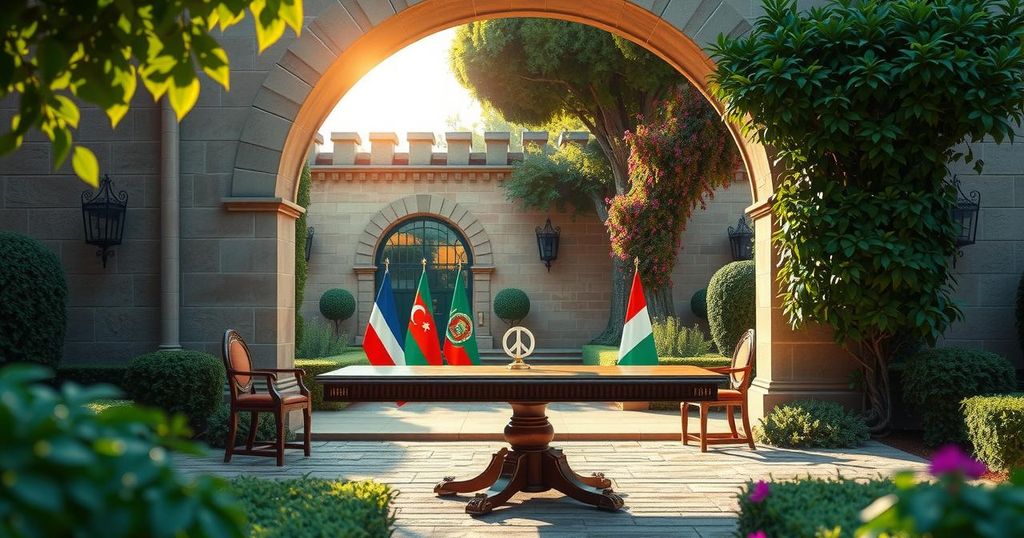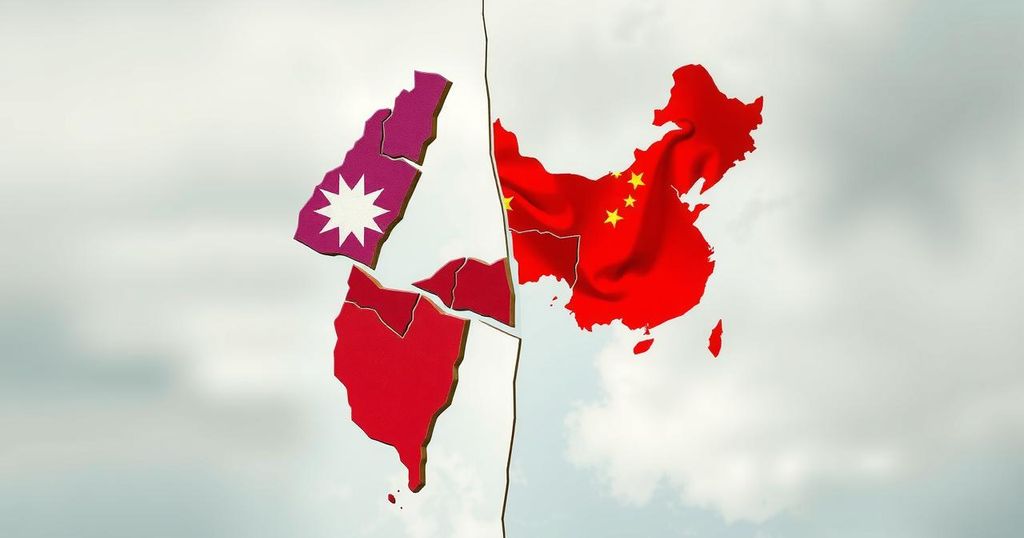Politics
ASIA, AZERBAIJAN, BAKU, BEIJING, CHINA, CHINA CLIMATE HUB, CLIMATE JUSTICE, DELHI, DONALD TRUMP, EB CIRCLE, ENVIRONMENTAL POLICY, GEOPOLITICS, INDIA, INTERNATIONAL COOPERATION, LI, LI SHUO, MEXICO, NORTH AMERICA, PARIS AGREEMENT, SIMON STIEL, SIMON STIELL, UNFCCC, UNITED NATIONS FRAMEWORK CONVENTION ON CLIMATE CHANGE, UNITED STATES, WEST, WHITE HOUSE
Clara Montgomery
China and India Delay Climate Targets Amid Geopolitical Uncertainty
In light of the approaching deadline for national climate plans, major polluters including China and India are delaying their submissions due to geopolitical tensions. The unwillingness to commit stems from the effects of Donald Trump’s re-election and inadequate financial commitments from developed countries. Observers remain hopeful for updates, while smaller nations like Singapore are taking significant steps in their climate ambitions.
As the deadline for submitting updated national climate plans looms on 10 February, countries are largely holding back on making announcements, influenced by a “volatile geopolitical situation.” The re-election of Donald Trump and escalating tensions between China and the West appear to have led to delays, particularly regarding China’s 2035 climate targets under the Paris Agreement.
India is also reportedly postponing its updated Nationally Determined Contributions (NDCs) to the UN Framework Convention on Climate Change due to developed nations’ inadequate financial support during COP29. Li Shuo, director of the China Climate Hub, indicated that many nations are waiting for clarity in global politics to finalize their NDCs. He noted, “If one treats the NDCs as seriously as a plan that carries profound implications for a country’s transition, then it is natural to allow some time.”
As of the February deadline, only 13 out of 195 signatories to the Paris Agreement had submitted their NDCs. China, India, and the European Union have not yet put forward their plans, although UN climate chief Simon Stiell has encouraged countries to ensure their plans are of high quality. The Chinese foreign ministry stated that it is working to establish new NDCs in compliance with the Paris Agreement and the first Global Stocktake.
The geopolitical climate, especially with Donald Trump’s influence, has hindered global climate efforts and prompted caution among nations in setting ambitious targets. China’s emissions growth slowed in 2024, with hopes that it may reach a peak this year, allowing the country to focus on substantial emissions reductions over the decade.
Climate policy expert Melissa Low emphasized the significance of integrating outcomes from the first Global Stocktake into updated NDCs, despite recent discussions losing momentum. She warned that countries must prioritize the stocktake results to remain committed to future assessments, as the next Global Stocktake is scheduled for 2028.
India’s climate target-setting is complicated by its dissatisfaction over financial support from developed nations. The government is reportedly delaying its updated NDCs, stating that it needs more negotiations regarding the financial aid required. Insiders indicate that India’s ambitions may be dampened by this perceived lack of support.
Bill Hare of Climate Analytics asserts that India requires international backing to achieve significant climate ambitions, emphasizing the need for going beyond fossil fuel reliance. Hare noted that China should also step up its commitments to climate governance and provide strong NDCs moving forward.
Despite various delays in NDC submissions, observers remain hopeful that China and India will update their commitments in 2023. The flexibility inherent in the Paris Agreement’s implementation committee underscores that no punitive consequences will arise from missed deadlines.
One notable NDC submission comes from Singapore, which has committed to a significant emissions reduction by 2035. Although further efforts are needed to close the gap between its targets and scientific projections for alignment with the 1.5°C goal, these reductions signal a shift in the nation’s climate strategy due to rising international expectations for action and the influence of public sentiment.
In summary, the geopolitical landscape, particularly with the influence of the re-elected Trump administration and unmet financial commitments to developing nations, has created a cautious atmosphere among major emitters like China and India regarding their climate targets. Despite the delays, there is hope that these nations will eventually submit ambitious Nationally Determined Contributions. Meanwhile, Singapore’s commitment illustrates a proactive approach among smaller nations to enhance their climate action amid rising scrutiny from the global community.
Original Source: www.eco-business.com








Post Comment